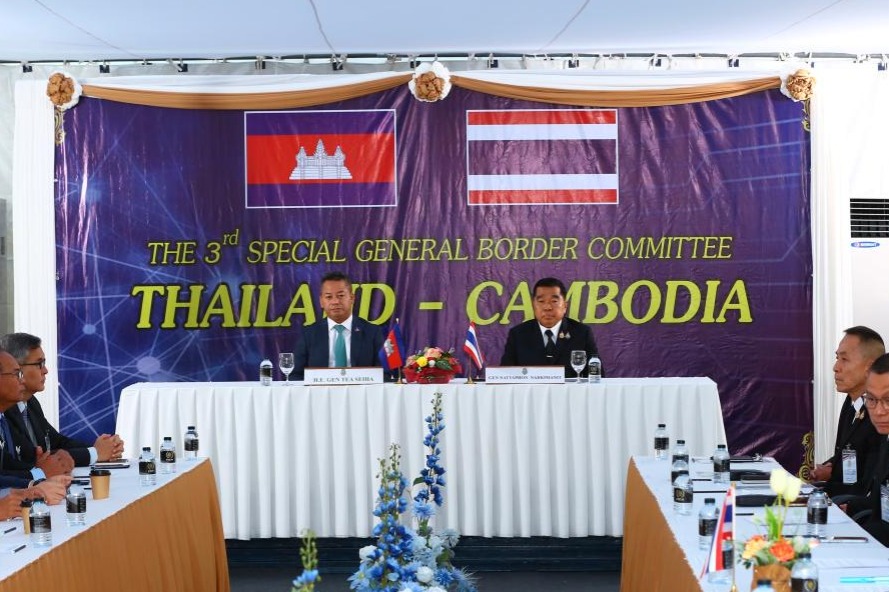G-7 should go beyond vaccine nationalism

A strategy to vaccinate the whole world will be high on the agenda of leaders of the rich G-7 states when they meet face-to-face in the United Kingdom this month, under pressure to step up the supply of surplus vaccines to poorer countries.
Henrietta Fore, the executive director of the United Nations children's agency, UNICEF, is among international officials who have urged the G-7 to immediately increase the transfer of their excess vaccines, even as they continue to vaccinate their own populations.
Fore said in a statement that by the time the G-7 meets, from June 11 to 13, the shortfall in supplies to poorer countries via COVAX, the international vaccine campaign co-led by the World Health Organization and its partners, would be nearly 190 million doses.
Her concerns were echoed by UN Secretary-General Antonio Guterres, who warned international health officials against a two-speed response to the COVID-19 pandemic.
"Sadly, unless we act now, we face a situation in which rich countries vaccinate the majority of their people and open their economies, while the virus continues to cause deep suffering by circling and mutating in the poorest countries," he said.
It has become something of a cliche among international politicians to assert that "no one is safe until everyone is safe" in the global race to contain the disease. However, the warnings from the UN indicate that rich countries' leaders are not always living up to the rhetoric as they prioritize vaccination of their own populations with a view to reopening their own economies.
Former UK prime minister Gordon Brown, an advocate of wider vaccine-sharing, wrote in May that the availability of multiple vaccines had made it possible for the United States and the UK to vaccinate half of their citizens. But just 11 percent of Indians and little more than 1 percent of sub-Saharan Africa had received a shot.
The G-7 summit-which will bring together the leaders of Canada, France, Germany, Italy, Japan, the UK and the US-is the right occasion and will involve the right people to make a historic agreement on a burden-sharing plan, according to Brown.
Recent data from institutions including the UK's Oxford University indicated that more than 1.5 billion vaccine doses had been administered in over 180 countries by May, the equivalent of around 20 doses for every 100 people.
However, the uneven pace of coverage of vaccine programs meant that many areas, including a number of African countries, had yet to administer a single dose. Brazil and India, both badly hit by the virus, were also trailing, despite the latter being a major vaccine producer and exporter.
US President Joe Biden appeared to push the vaccine-sharing agenda forward when he proposed waiving patent rights in order to allow poorer countries to increase their own vaccine production.
However, there was pushback to the early May initiative from drug companies and European governments that feared it would set a precedent. Some health experts also cautioned that the proposal would take time to negotiate and did not reflect the urgency of the situation.
Outside the G-7, China and Russia have also been pursuing their own vaccine export strategies. China, which pledged 10 million doses to COVAX, has donated or sold about 700 million doses worldwide, including to Africa and Latin America, according to a Beijing-based vaccine tracker.
Beijing has also supported overseas production of its vaccine in Brazil, the United Arab Emirates and Egypt. The first batch of China's Sinovac vaccines to be produced at an Egyptian plant is due to be approved in July.
Brazil's ambassador to China, Paulo Estivallet, said in late April that his country's vaccination program had relied predominantly on the Chinese vaccine after Brazil became one of the first countries to approve it.
Doses of Russia's Sputnik V vaccine are also being shipped abroad, including to some European states that were frustrated by the slow rollout of the EU's vaccine program.
Some US diplomats were quoted by the news website Politico as expressing frustration that China and Russia were pressing ahead with vaccine exports while the US was effectively hoarding its excess supplies until all its citizens were vaccinated.
A US State Department official told Politico that "first and foremost, we need to be confident in our own vaccine efforts at home-at which point we'd be able to do even more beyond our borders".
The challenge for the G-7 leaders will be to go beyond such vaccine nationalism and come up with a formula to share resources now, rather than delay until the virus has the opportunity to spread and mutate among unprotected communities around the world.
One positive sign is that public opinion in the rich countries may be more internationalist than that of some of their political leaders.
A poll in the UK found that a majority of the public favored the sharing of vaccines and, in the process, preventing new variants from emerging.
About 70 percent said their leaders should work together to distribute vaccines fairly across the world. Maybe the G-7 leaders should take their lead from them.
The author is a senior media consultant for China Daily UK.

































